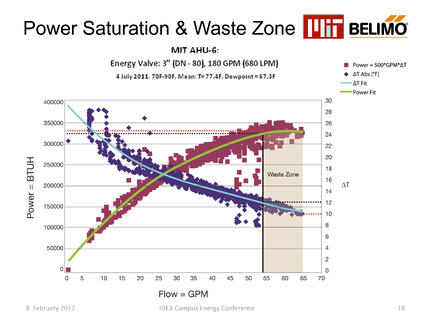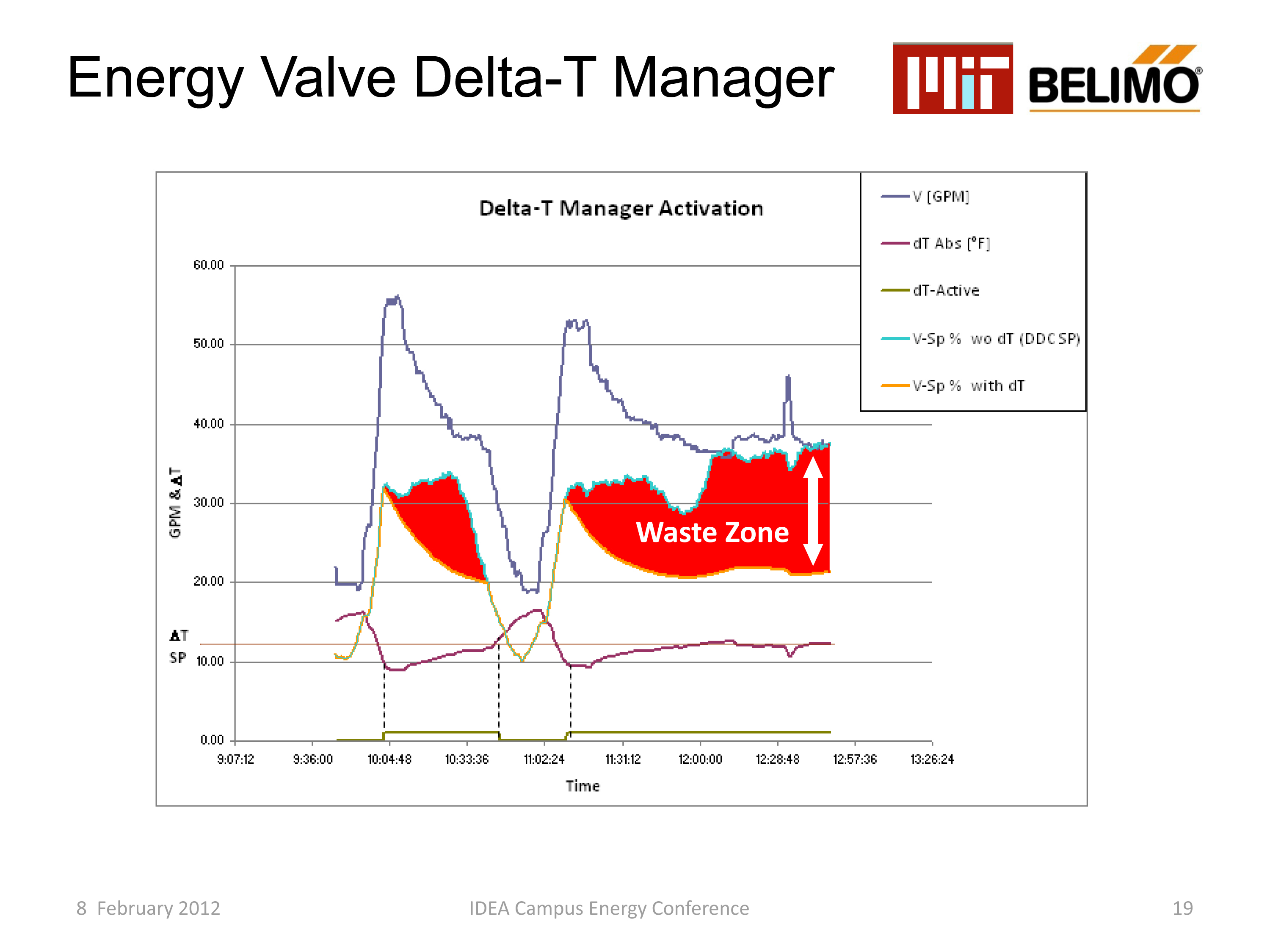MIT Reaps the Rewards of Higher Delta-T!
Low Delta-T Syndrome is a common (and costly) problem in many large facilities, especially on sprawling campuses with central chilled water plants. This was and still is the case at The  Massachusetts Institute of Technology (MIT). But the problem isn’t as bad as it used to be. Facility engineers within the University’s Sustainability and Utility Planning are now optimistic that it will continue to improve. This is in thanks to new valve technology from Belimo that was applied to MIT’s Charles Hayden Library as a beta test for a new Belimo product – the Belimo Energy Valve™. The results are promising for any large facility currently battling Low Delta-T Syndrome.
Massachusetts Institute of Technology (MIT). But the problem isn’t as bad as it used to be. Facility engineers within the University’s Sustainability and Utility Planning are now optimistic that it will continue to improve. This is in thanks to new valve technology from Belimo that was applied to MIT’s Charles Hayden Library as a beta test for a new Belimo product – the Belimo Energy Valve™. The results are promising for any large facility currently battling Low Delta-T Syndrome.
With the Energy Valve, Belimo  set out to design a “smart” valve that would combine the function of an electronic pressure independent control valve that also included a flow sensor, and return and supply water temperature sensors, along with the communications and logic capability to use these sensed values for improving coil performance. The technology would be used to optimize the heat transfer performance of individual coils by continuously monitoring the coil Delta-T and comparing this value to the desired Delta-T setpoint. If these values were not the same, or suitably close, the valve would readjust itself. Furthermore, data gathered at the valve would be reported back to the Building Automation System (BAS) and used for further trending and diagnostics.
set out to design a “smart” valve that would combine the function of an electronic pressure independent control valve that also included a flow sensor, and return and supply water temperature sensors, along with the communications and logic capability to use these sensed values for improving coil performance. The technology would be used to optimize the heat transfer performance of individual coils by continuously monitoring the coil Delta-T and comparing this value to the desired Delta-T setpoint. If these values were not the same, or suitably close, the valve would readjust itself. Furthermore, data gathered at the valve would be reported back to the Building Automation System (BAS) and used for further trending and diagnostics.
MIT had the perfect test case opportunity for this developing technology: The Charles Hayden Library. Download complete case study or listen to the proceeding from International District Energy Association (IDEA) Annual Campus Energy Conference.

